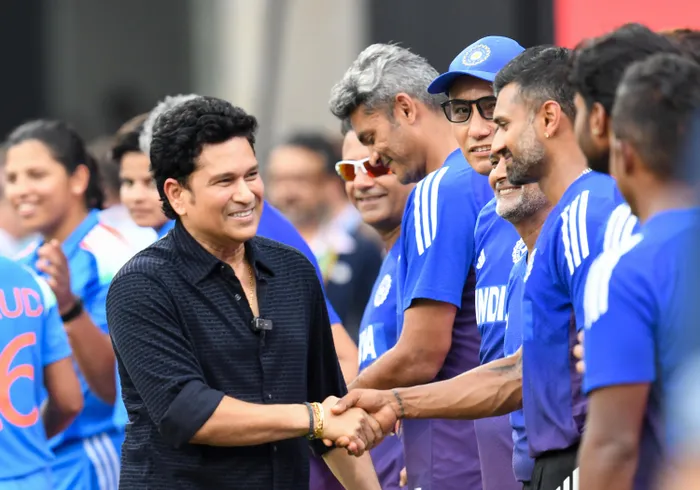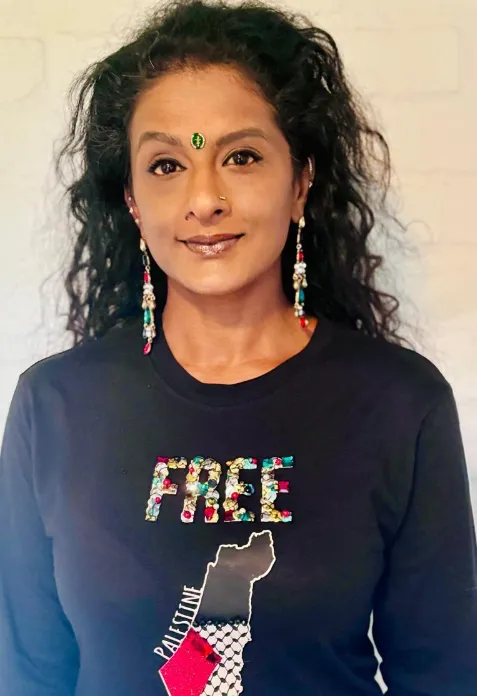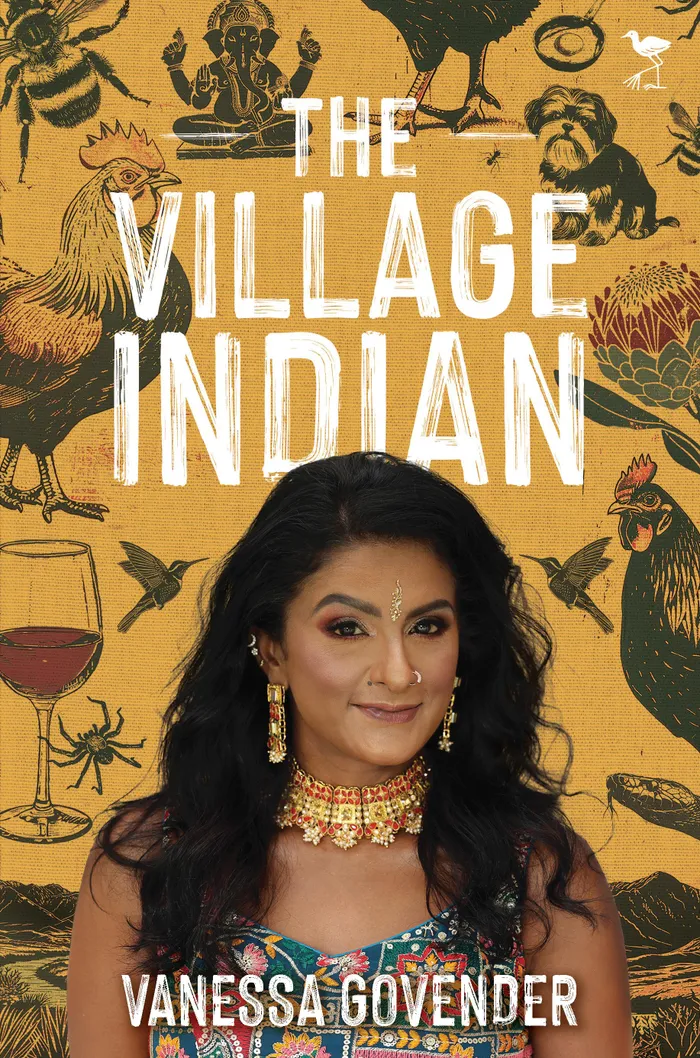When South Africa’s cricket kings forsake their queens
'When you invest in women, they deliver glory'

Former cricketer Sachin Tendulkar greeted the Indian women’s team coaching staff ahead of the ICC Women’s World Cup final match between India Women and South Africa Women at DY Patil Stadium in Navi Mumbai on November 2, 2025.
Image: IANS
INDIA’S triumph at the Women’s T20 World Cup last month was a spectacle of skill, grit, and national pride. Yet, as the confetti settled in Dubai, a piercing voice cut through the jubilation, not from the stands, but from the digital trenches of X.
Thanja Vuur, the Cape Town-based actress and writer known as @capetown cricket queen, unleashed a scathing critique that laid bare a festering truth about South African cricket.
A truth that many are not prepared to even acknowledge let alone fix.
Her words, raw and unapologetic, called out the establishment and its male ex-cricketers for abandoning the Protea Fire women’s team when they needed support most.
“India, you win this World Cup. Your congratulations is coming. Just give me a few minutes because first I’m gonna tell you why,” Vuur posted, her words sparking like a flare.
“The reason is you. Sachin Tendulkar, Rohit Sharma, even VVS Laxman, were there to support you. Who the hell showed up from South Africa? Hm? These ex-cricket players that you love from South Africa, the men… where are they? Oh, this event was not high-profile enough for them. Nobody showed up. I don’t think our minister of sport was there.”
As a news journalist and women’s rights activist, I have spent years uncovering stories of inequity, from boardrooms to townships.
Vuur’s post hit me like a personal call to arms. It’s not just about one tournament, it’s about a system that treats women’s cricket like an afterthought, a side dish to the men’s game’s main course. India’s victory was no accident.
Their women played with the backing of a nation, bolstered by icons like Tendulkar, who tweeted mid-tournament praise, and Sharma, whose presence in the stands was a beacon of solidarity. Even VVS Laxman lent his voice, proving that male legends can amplify their sisters without dimming their own light. The result? A team that didn’t just win, they soared.
Contrast that with South Africa, where our women, like Marizanne Kapp or Nonkululeko Mlaba, fight on pitches as uneven as the support they receive. Cricket South Africa (CSA) talks a big game about transformation, but where’s the substance? The women’s SA20 league is a start, but it is a drop in a bucket that’s been leaking for decades. In 2023, when our women’s team shone at the ODI World Cup, they returned to silence from the very legends who could shift the narrative. Graeme Smith, AB de Villiers, Faf du Plessis, these names could pack stadiums with a single tweet. Yet, when Suneé Luus’s squad faced funding gaps or online vitriol, where were they?
And Minister of Sport Gayton McKenzie? He put out the usual and expected press release congratulating the women, a ,long statement full of words but signifying nothing of substance really. And let’s face it press releases are not going to cut it, not when presence has more impact. In a country where rugby and football command ministerial fanfare, where the who’s who of politics and sport are spotted on the stands, smiling for the cameras celebrating and cheering on the men on the field, women’s cricket is left scraping for scraps.
As a woman of colour who has navigated newsrooms where my voice was sometimes muted for the sake of male egos, Vuur’s rage resonates. I have written about the unsung heroines of South Africa, women who break ceilings only to find the floor crumbling beneath them. My work as an activist and author of two (what some would describe as ‘disruptive’) books, has taught me that change doesn’t come from polite requests; it demands disruption. Vuur’s post isn’t a rant, it’s a manifesto. She’s not just calling out the men; she’s exposing a patriarchy that cloaks itself in tradition. When our women cricketers are left to fend for themselves, it’s not just their loss, it’s South Africa’s shame.
So, to CSA and those ex-stars polishing their legacies in commentary booths: Step up. Mentor the next Kapp, fund the academies, amplify the voices.
To minister McKenzie: Your portfolio isn’t a trophy case for men’s victories; it’s a mandate for equity. India’s win is a blueprint, proof that when you invest in women, they deliver glory.
Thanja Vuur has lit the fuse. Now, let’s ensure the congratulations don’t stop at India, they must echo home, where our queens deserve thrones, not footnotes.

Vanessa Govender
Image: File
Govender is a former SABC radio and award winning ENCA television news reporter. She is an author of the children’s book, The Selfish Shongololo, the bestselling memoir and Beaten But Not Broken.

Captivating, humourous, and deeply insightful, this new book is not just a narrative but a heartfelt reflection on the unique charm and complexities of living in a close-knit village, contrasting sharply with the hustle and bustle of urban existence.
Image: Supplied
Her recently released memoir is The Village Indian.
Picture a feisty Chatsworth diva, raised on spicy curries and auntie gossip, trading Durban’s drama for a sleepy village with her white husband and three curious kids. In this book, Govender’s memoir bursts with laugh-out-loud wit and raw heart, clashing urban masala with rural calm. Her Durban Indian lingo spices up tales of mixed-race family life, decoding village politics and whispers that outdo Chatsworth tittle-tattle. Love crosses colour lines, but curry sparks epic bonds. The Village Indian is a riotous ride through South African Indian identity and ancestor vibes went into reprint weeks after launch, hooking South Africa’s rainbow nation. Snag your copy from Jacana Media, hotter than a winter vindaloo. Follow her on X @Govender_VInstagram @vanessa_tedder